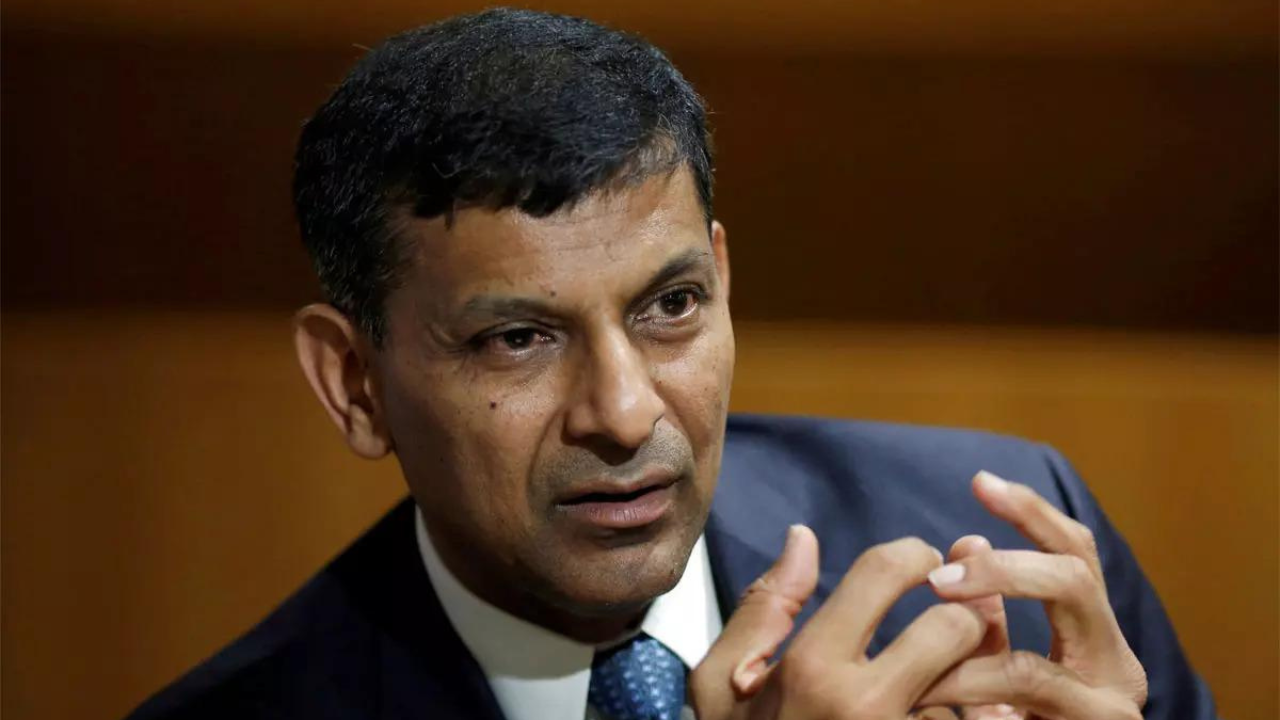HYDERABAD: India’s ambition to march into `Amrit Kaal’ by 2047 is an important one but the current pace of growth is not enough to get us there as we will still remain a lower middle-income economy by then, former Reserve Bank of India (RBI) governor Raghuram Rajan said here on Saturday.
Speaking at an interactive session organised by Manthan, Rajan mooted a focus on high-value added services instead of manufacturing to productively harness the country’s demographic dividend and propel the country into ‘Amrit Kaal’ because if India does not grow faster, it would grow older demographically before it gets richer.
“If you do the math, at 6% a year, you double every 12 years, and therefore in 24 years, we’ll be four times our per capita income (PCI). Today, the PCI in India is just a little below $2,500 per person. Multiply this by four, we get $10,000 per person…at our current rate of growth, strong as it is and highest in the G20, we won’t get rich but will stay lower middle income till 2047. We will start the process of aging at some point around that time (2047)…which means we all have all the burdens of an aging population to deal with also at that point,” he said.
“We will start the process of aging at some point around that time (2047),which leads to the alarming question if we don’t grow faster, we will grow old before we grow rich, which means we all have all the burdens of an aging population to deal with also at that point,” he said.
Here he pointed out that the fertility rates of some Southern states have already slipped below the reproduction rate.
Highlighting the need to focus on moving up the value chain in services, he cited the example of developed countries whose economies are powered by services rather than manufacturing as well as companies like smartphone maker Apple and electronics contract manufacturer Foxconn.
“…Apple on a good day its market value is $3 trillion and on a good day Foxconn’s market value is $50 billion. Apple is worth 60 times of Foxconn. It’s worth 60 times the entity that does all the manufacturing,” he said.
To drive home his point, he pointed out that the services component is more labour intensive and valuable than the manufacturing component.
“A lot of young people are entering the labour force, but we’re not able to employ them. So on the one hand, we have a need for jobs. On the other hand, we have a need for strong growth,” he said.
He suggested a three-pronged approach to achieve fast-paced growth — fixing governance so that the political system focuses on issues such as health and education instead of giveaways or freebies, improving human capital by fixing basics such as malnutrition in children and evolving into an entrepreneurial, creative and innovative society to capture the plateaus, rather than stay in the valley.
Speaking at an interactive session organised by Manthan, Rajan mooted a focus on high-value added services instead of manufacturing to productively harness the country’s demographic dividend and propel the country into ‘Amrit Kaal’ because if India does not grow faster, it would grow older demographically before it gets richer.
“If you do the math, at 6% a year, you double every 12 years, and therefore in 24 years, we’ll be four times our per capita income (PCI). Today, the PCI in India is just a little below $2,500 per person. Multiply this by four, we get $10,000 per person…at our current rate of growth, strong as it is and highest in the G20, we won’t get rich but will stay lower middle income till 2047. We will start the process of aging at some point around that time (2047)…which means we all have all the burdens of an aging population to deal with also at that point,” he said.
“We will start the process of aging at some point around that time (2047),which leads to the alarming question if we don’t grow faster, we will grow old before we grow rich, which means we all have all the burdens of an aging population to deal with also at that point,” he said.
Here he pointed out that the fertility rates of some Southern states have already slipped below the reproduction rate.
Highlighting the need to focus on moving up the value chain in services, he cited the example of developed countries whose economies are powered by services rather than manufacturing as well as companies like smartphone maker Apple and electronics contract manufacturer Foxconn.
“…Apple on a good day its market value is $3 trillion and on a good day Foxconn’s market value is $50 billion. Apple is worth 60 times of Foxconn. It’s worth 60 times the entity that does all the manufacturing,” he said.
To drive home his point, he pointed out that the services component is more labour intensive and valuable than the manufacturing component.
“A lot of young people are entering the labour force, but we’re not able to employ them. So on the one hand, we have a need for jobs. On the other hand, we have a need for strong growth,” he said.
He suggested a three-pronged approach to achieve fast-paced growth — fixing governance so that the political system focuses on issues such as health and education instead of giveaways or freebies, improving human capital by fixing basics such as malnutrition in children and evolving into an entrepreneurial, creative and innovative society to capture the plateaus, rather than stay in the valley.
